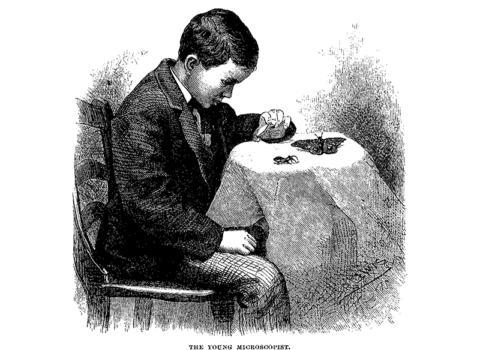Will Trump Become a Dictator?
There is a fashionable fear spreading among American intellectuals who want to appear devoted to democracy – especially after Donald Trump’s victories in the Iowa and New Hampshire primaries. This fear, which has reached near-hysterical levels in recent weeks, is based on the idea that Trump, even if he wins the next election by democratic rules, will try to seize dictatorial power upon returning to the White House.
Presented by a bipartisan coalition of liberals and conservatives, the thesis of an “irreversible descent into dictatorship” has been amplified by Robert Kagan, a neoconservative scholar who often makes common cause with the Democratic Party on so-called liberal foreign military intervention.
Following Kagan’s Op-Ed in the Washington Post, The Week took it even further by publishing an illustration of Trump, dressed in a military uniform with golden epaulettes, right fist raised, under the headline “Dictator in waiting?” I don’t know whether the uniform was a reference to a Latin American generalissimo or to an Eastern European marshal, but the idea was clear: a Trump dictatorship would necessarily be fascist and therefore comparable to Mussolini’s Italy or Hitler’s Germany.
The fact that Kagan and his allies in President Biden’s political apparatus are big supporters of NATO, which Trump hates, suggests other motivations lie behind this radical indictment of the former President. Even so, it is funny to think of a coup coming from the executive branch; parallels with Hitler and Mussolini are fitting, especially if one tends toward a romantic view of history.
Hitler rose to power democratically during the Weimar Republic, which at the time was led by Paul von Hindenburg. Elderly and almost senile, Hindenburg appointed Hitler chancellor in January 1933, when the Nazi Party was a minority in the Reichstag. The political leaders surrounding Hindenburg were mostly naïve and believed Hitler wouldn’t dare seize absolute power, or that he could be tamed or slowed down.
Without pushing the analogy too far, one can easily imagine President Biden, barely able to stand, attending Trump’s second inauguration on January 20, 2025. Nearly as old as Hindenburg was then, Biden would have to place his faith in a Constitution (to which Trump will again swear an oath) that has already survived four years under the yoke of his thuggish rival.
Once at the head of the government, however, Hitler soon took advantage of a timely and unprecedented event – the fire at the Reichstag – which he cleverly blamed on the Communist Party, thereby undermining the Communists in the upcoming parliamentary elections. After the Nazis and another party won a slight coalition majority, the Reichstag voted to grant Hitler full powers. Could Trump be as lucky and ambitious as Hitler?
It is likely no accident that New York’s Carnegie Hall is now asking the same question with “Fall of the Weimar Republic. Dancing on the Precipice,” a program running until May that includes discussions and music concerts that highlight the “fragility of democracy.” The organizers urge us to draw lessons from the “overwhelming economic hardship, social inequality and unrest, political polarization and extremism” that “paved the way for the opportunistic rise of Adolf Hitler and the Nazi Party.” Beware, cosmopolitan right-minded people of the East Coast elite!
Frankly, Trump does not have the intellectual capacity or concentration needed to plan such a coup, not even like the one Hitler led in Munich in 1924, which was a miserable failure. Building a political party, with all the details required for it to function, is not his thing. The January 6 “insurrection” wasn’t a failed coup. It was a successful riot, which thankfully did not deteriorate into large-scale loss of life.
Trump provoked the violence, to be sure, but he did it on a whim, as usual. Hitler committed high treason; Trump stuck with incitement. Moreover, Hitler had a genuine ideological plan in mind: the expansion of living space for the “Aryan race” (especially the Germans), the extermination of Jews, and the subjugation of the Slavic people. And Trump? He is driven by an incoherent collection of impulses, nonsense, and toxic alliances. Sure, he and Hitler share a phobia of germs and alcohol, but that doesn’t make him a biological purification extremist.
In the face of the screaming elite’s Trump phobia, I find it useful to consult Stefan Zweig, a great Viennese writer who witnessed up close the rise of Hitler and Mussolini and documented the resulting destruction of the old Europe he loved. In The World of Yesterday, Zweig described the extraordinary precision of the Nazi movement – its parades and violent bludgeoning of its enemies, perfectly coordinated in impeccable uniforms. “Inflation, unemployment […] the folly of foreign governments, had made the German people restless; a tremendous desire for order animated all segments of the German people, to whom order had always been more important than freedom and justice.”
Let us recall the display of twisted faces and bizarre costumes that invaded the Capitol on January 6, 2021. Trumpism certainly embodies disorder, but whether we like it or not, disorder is part of our democracy.



